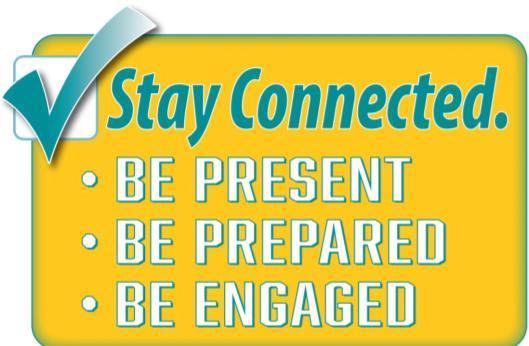Problem Solving
Books
Sometimes, reading a book can help you figure how how to handle a problem. Try some of these:
Friendship
- How to Lose All Your Friends by Nancy Carlson
- How to Be a Friend by Laurie and Marc Brown
- Making Friends by Kate Petty and Charlotte Firmin
- Friendship: From Your Old Friends to Your New Friends by Nuria Roca and Rosa Curto
- Three Friends by Jim and Joan Boulden
- What’s the Recipe for Friends? By Greg Williamson
- Big Al by Andrew Clements
- Enemy Pie by Derek Munson
Solving Problems
- Hands Are Not For Hitting by Martine Agassi
- We Can Work It Out by Barbara Polland
- We Can Get Along by Lauren M. Payne
- The Berenstain Bears Get in a Fight by Stan and Jan Berenstain
- The Knight and the Dragon by Tomie DePaola
- The Zax by Dr. Suess
- Six Crows by Leo Lionni
- The Butter Battle by Dr. Suess
Respect
- I Don’t Care: Showing Respect by Brian Moses
- Stellaluna by Jannell Cannon
- Verdi by Jannell Cannon
- The Grouchy Ladybug by Eric Carle
- A Pig is Moving In! by Claudia Fries
- Crysanthemum by Kevin Henkes
- Officer Buckle and Gloria by Peggy Rothman
- The Berenstain Bears’ New Neighbors by Stan and Jan Berenstain
- Arnie and the New Kid by Nancy Carlson
- Molly’s Pilgrim by Barbara Cohen
- The Patchwork Quilt by Valerie Flournoy
- Teammates by Peter Golenbock
- Treat Me Right: Kids Talk About Respect by Nancy Loewen
Point of View
- The True Story of the Three Little Pigs by John Scieszka
- Two Bad Ants by Chris Van Allsburg
- The Chinese Mirror by Mirra Ginsburg
- The Hating Book by Charlotte Zolotow
- Hey, Little Ant by Phillip and Hannah Hoose
Anger Management
- When I Feel Angry by Cornelia Spelman
- When Sophie Gets Angry by Molly Bang
- The Very Angry Day That Amy Didn’t Have by Lawrence Shapiro
- Don’t Rant and Rave on Wednesdays by Adoph Moser
- Andrew’s Angry Words by Dorothea Lachner
- Spinky Sulks by William Steig
- Alexander and the Terrible, Horrible, No Good, Very Bad Day by Judith Viorst
Teasing and Bullying
- Teasing by Joy Berry
- The Berenstain Bears and Too Much Teasing by Stan and Jan Berenstain
- Stop Picking On Me by Pat Thomas
- The Hundred Dresses by Estes/Slobodkin
- Oliver Button is a Sissy by Tomie DePaola
- Being Bullied by Joy Berry
- Being Bullied by Kate Petty and Charlotte Firmin
- Loudmouth George and the Sixth Grade Bully by Nancy Carlson
- Bullies Are a Pain in the Brain by Trevor Romain
- Simon’s Hook by Karen G. Burnett
Appreciating and Respecting Differences
- The Sneetches by Dr. Suess
- Just A Little Different by Mercer Mayer
- Two Eyes, A Nose, and a Mouth by Roberta G. Intrater
- Why Am I Different? By Norma Simon
- Families by Meredith Tax
- This is Our House by Michael Rosen
- A Bad Case of Stripes by David Shannon
- People by Peter Spier
- Freedom Summer by Deborah Wiles
- Teammates by Peter Golenbock
- Amazing Grace by Mary Hoffman
- Eggbert the Slightly Cracked Egg by Tom Ross
- Loudmouth George and the New Neighbors by Nancy Carlson
Empathy/Caring
- Roses Are Pink, Your Feet Really Stink by Diane DeGroat
- The Velveteen Rabbit by Margery Williams
- A Chair for My Mother by Vera Williams
- Mufaro’s Beautiful Daughter by John Steptoe
- Two Good Friends by Judy Delton
- The Hurt by Teddi Doleski
*Book list compiled by Elizabeth Duke, Counselor, Darnestown ES, 2003
Things That Friends Do and Do Not Do
Things That Friends Do:
- Help
- Show they care about other’s feelings
- Share
- Compliment others
- Be nice
- Say sorry and work it out with kind words
- Smile at others
- Stand up for each other
- Say nice things to each other
- Use good manners and be polite
- Show respect
- Include others
Things That Friends Do NOT Do:
- Say mean things like “shut-up” or “I hate you”
- Brag
- Boss others around
- Laugh at others
- Interrupt or talk when others are talking
- Tattle (tell on someone just to get them in trouble)
- Leave people out
- Push, kick, hit, punch, etc.
- Hurt each other’s feelings
- Make fun of others or tease
- Call someone a name they do not like
- Threaten (“If you don’t _____, then I will ____!)
We want to work hard to be good friends to each other.
ABCD Problem Solving
A
Ask, "What's the problem?"
B
C
Choose the best solution.
D
Do it!
You can use the ABCD Problem Solving model to solve any problem! Try it!
Use "I–Message
"I feel __________________
when ______________.
Please ______________
*I-messages help us to express our feelings and solve problems in a peaceful way.
Remember…
- Tell how you feel.
- Tell what happened to make you feel that way.
- Tell what would make things better for you.
- Don’t blame, insult, name call, or threaten.


